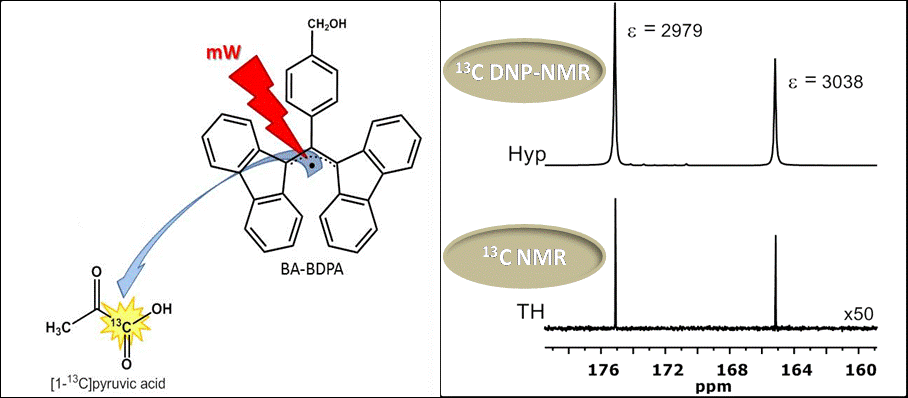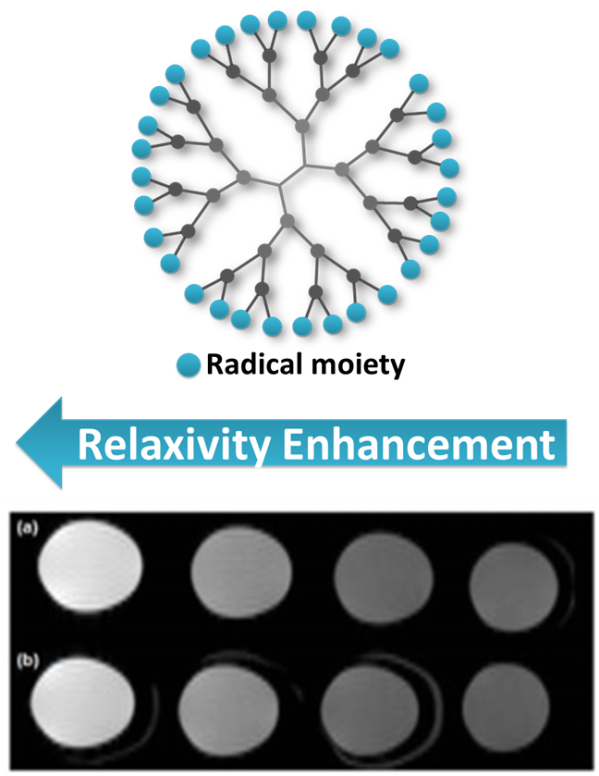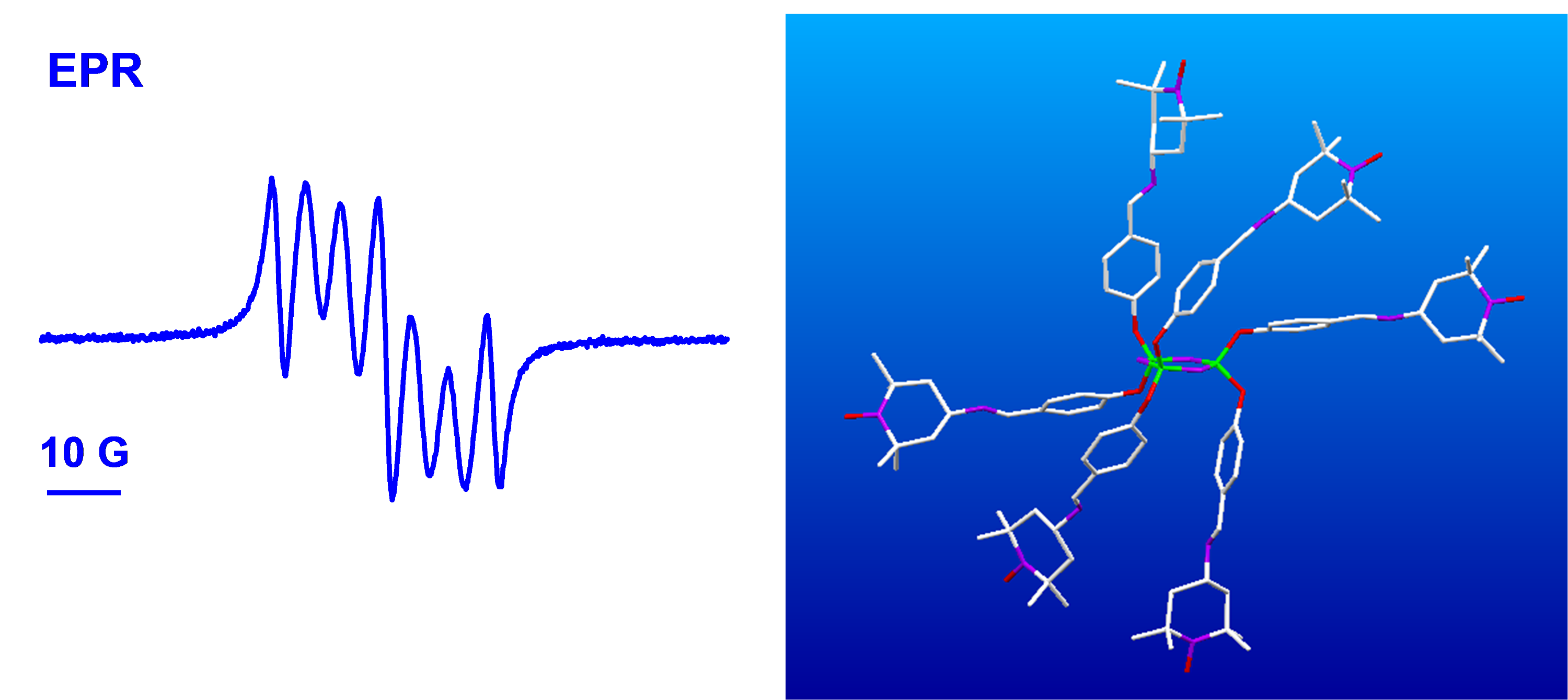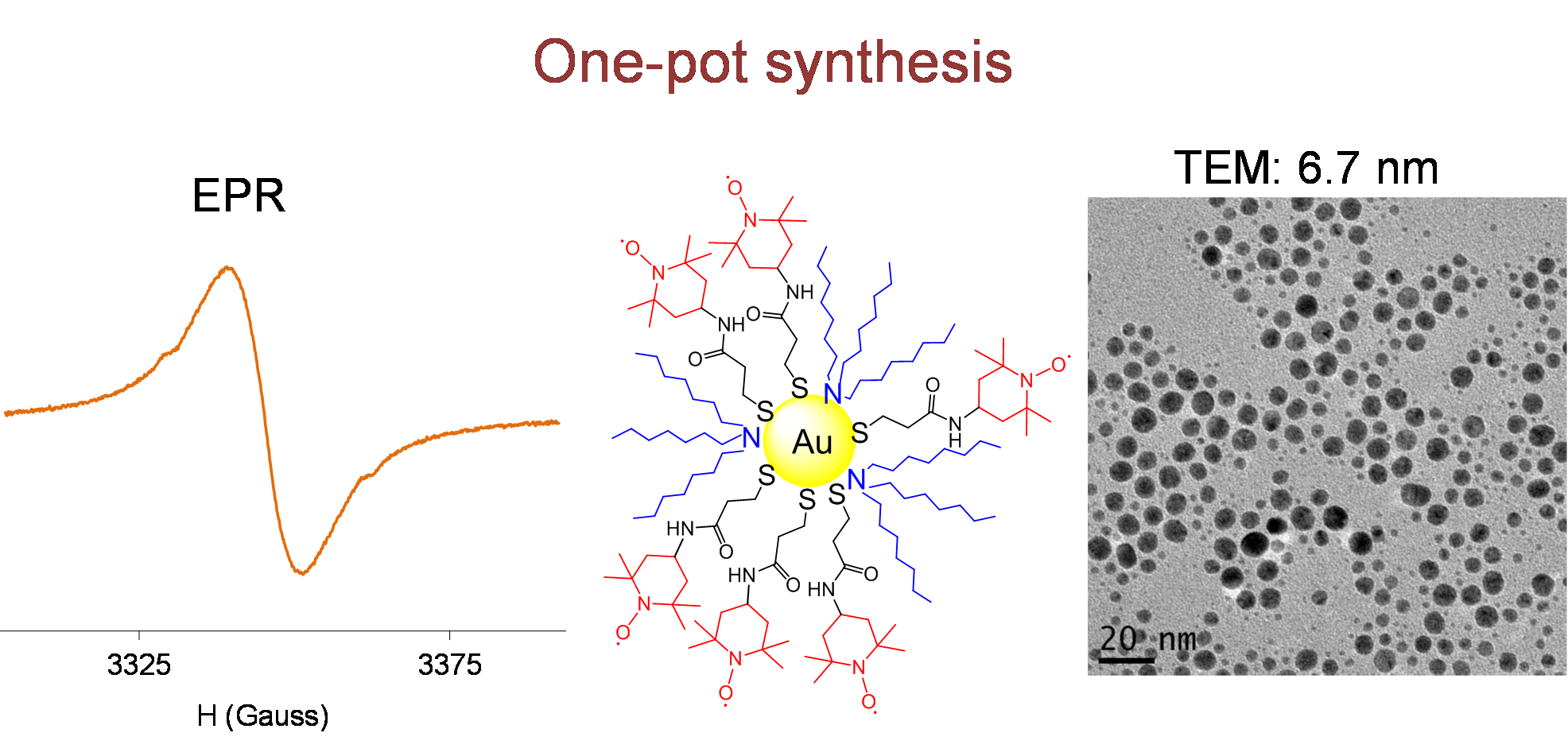Radicals as polarizing agents in Dynamic Nuclear Polarization (DNP)
Dynamic nuclear polarization (DNP) has recently revealed its potential to enhance the NMR sensitivity in solids and liquids. DNP allows for the intrinsically large spin polarization of electrons to be transferred to nuclei for detection in magnetic resonance experiments with a theoretical signal enhancement of over 600 for protons and 2400 for 13C. When combined with polarization at very low temperatures, sensitivity enhancements of more than 4 orders of magnitude over the Boltzmann population of the nuclear spin have been described. We are working on the synthesis of new radicals and its application as polarizing agents for future DNP-MRI applications.

Macromolecular Organic Radicals as Contrast Agents for Magnetic Resonance Imaging (MRI)
Magnetic resonance imaging (MRI) is one of the best non invasive clinical imaging methods used in medicine which takes benefit of the NMR principles. MRI contrast agents (CAs) play an important role in improving the sensitivity of the tumor diagnosis. Currently, low-molecular-weight Gd(III) chelates are the mostly used paramagnetc metal ion-based CAs in the clinic. However, patients with impaired kidney function are reported to be at increased risk of developing a serious adverse reaction named nephrogenic systemic fibrosis (NSF). Stable organic free radicals provide an alternative to Gd(III).
Our work ranges from the synthesis of new macromolecular stable organic radicals contrast agents for MRI and the development of different types of biosensors based on these systems.
 |
 |
Gold nanoparticles covered with organic radicals
Supramolecular magnetic assemblies can be built using a range of different materials as scaffolds: functionalized polymers, dendrimers, or metallic nanoparticles.
We are working on gold nanoparticles as supports for organic radicals to study magnetic interactions as magnetic probes.







